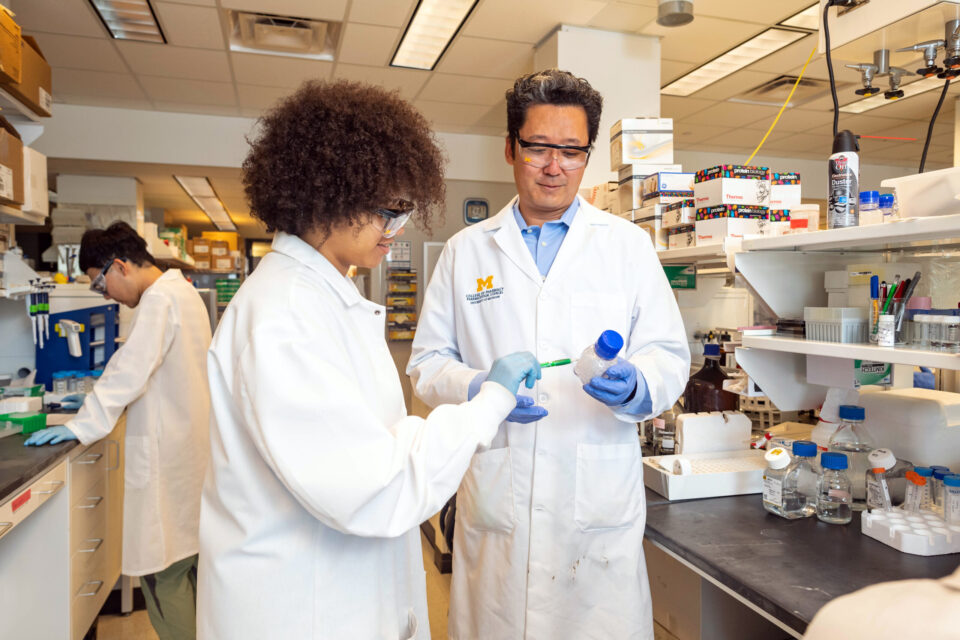New Dietary Fiber Gel Shows Promise in Treating Food Allergies
July 8, 2024
Author: Toni Shears
Media Contact: Lindsay Groth, Director of Marketing and Communications, [email protected]
A groundbreaking study from the University of Michigan has revealed a potential new treatment for food allergies, offering hope to millions worldwide. The research, led by a team of scientists, introduces an innovative therapy based on dietary fiber gel that addresses the root cause of food allergies, rather than just managing symptoms.
Food allergies have become a significant concern globally, especially in developed nations, as accidental exposure to allergens can trigger severe reactions.
However, a new study published in Nature Materials unveils a promising approach called inulin gel-based oral immunotherapy. This therapy not only tackles severe allergic reactions but also addresses the underlying imbalance of the gut microbiota implicated in the rising prevalence of food allergies.
The study, conducted on mice, found that the inulin gel, specifically formulated with an allergen, normalized the imbalanced intestinal microbiota and metabolites in allergic mice. This normalization led to the establishment of allergen-specific oral tolerance, effectively suppressing allergic reactions to various food allergens, including peanut, egg white, and milk.
Key findings of the study include enhanced retention and uptake of allergens by antigen-sampling dendritic cells in the small intestine, suppression of pathogenic type 2 immune responses, and an increase in regulatory T cell populations. Additionally, the therapy restored specific beneficial bacteria in the gut associated with food allergy regulation.
Dr. James Moon, the senior author of the study and the J. G. Searle Professor of Pharmaceutical Sciences at the College of Pharmacy, explained that the inulin gel-based therapy holds great promise due to its safety profile and potential for large-scale production. “Inulin, a widely consumed dietary fiber recognized as safe by the FDA, forms the basis of the gel, making it a feasible and translatable option for clinical use,” says Dr. Moon.
The therapy’s effectiveness was demonstrated in various food allergy models, including peanut, egg white, and cow’s allergies, across different mouse strains. “The therapy showed long-lasting protection even after the cessation of treatment, indicating its potential for sustained relief from food allergies,” says Fang Xie, a graduate student who led the studies.
Furthermore, the study emphasized the role of the small intestine’s microbiota and metabolites in food allergy regulation, shedding light on new avenues for therapeutic interventions.
Overall, the inulin gel-based oral immunotherapy represents a promising step forward in food allergy therapies. With further research and clinical trials, this approach could offer much-needed relief to individuals living with food allergies worldwide.
James Moon’s lab is an example of researching at the cutting edge of this field, deploying the sophisticated tools of drug delivery technologies and combining pharmaceutics and engineering to design targeted ways to boost the body’s power to fight disease.
Latest News
Dr. Mustapha Beleh wins 2025 Teaching Excellence Award
April 22, 2025
Dr. Beleh is a two-time winner of this award, previously receiving the recognition in 2019.
Professor Amanda Garner Named Charles Walgreen, Jr. Professor
March 28, 2025
Author: Markie Heideman, Content Marketing Manager Media Contact: Lindsay Groth, Director of Marketing and Communications, [email protected] Amanda Garner, PhD, has been named Charles Walgreen, Jr. Professor of Medicinal Chemistry, as approved by the Regents of the University of Michigan. Both The Charles Walgreen, Jr. Professorship created in December 2024 and the already-established Charles R. Walgreen, […]
Professor Shiyanbola Elected to Behavioral Medicine Fellowship
March 27, 2025
This SBM fellowship is not only a recognition of Dr. Shiyanbola’s hard work but an opportunity to mentor early-career investigators.